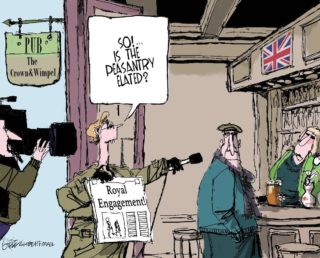Perry Bellegarde was re-elected on Wednesday to a second term as National Chief of the Assembly of First Nations, fending off a challenge to his leadership from opponents who argued he had not been forceful enough in dealing with the federal government.
The new three-year term will include the contentious debate over federal plans to expand the Trans Mountain oil pipeline, which has outraged a number of B.C. First Nations but has some support in Alberta, as well as a 2019 federal election campaign during which the Liberals will have to defend their record on First Nations issues.
Mr. Bellegarde, a former chief of the Federation of Saskatchewan Indian Nations, won on the second ballot with just over the required 60-per-cent support. Sheila North, Grand Chief of Manitoba Keewatinowi Okimakanak, was second, with 24 per cent.
In a victory speech, Mr. Bellegarde described the leadership fight as “humbling” but now concluded, clearing the way for work on key First Nations files such as better housing, health care and resource access.
“We have work to do,” he told hundreds of delegates, but did not get into specifics.
While opponents had accused Mr. Bellegarde of being too cosy with Ottawa, and challenged his commitment to deliver on the issue of Indigenous sovereignty, he said his tenure as National Chief had produced real results for First Nations people.
Mr. Bellegarde said his close relationship with the federal government has secured billions of dollars in new funding for Indigenous issues in the past three budgets.
After first ballot results earlier in the day, some candidates complained about the presence of Carolyn Bennett, federal Crown-Indigenous Relations Minister, at a meeting of Alberta chiefs before the voting results were announced.
“She shouldn’t have been anywhere in this building, particularly on election day,” candidate Russ Diabo said. “It’s undue influence.”
Miles Richardson, also a candidate, said Ms. Bennett interfered with the assembly by being present.
Ms. Bennett’s office rejected the complaints, noting that Alberta Regional AFN Chief Marlene Poitras invited her to listen to the concerns of Alberta chiefs.
“In no way did the Minister interfere in the electoral process for National Chief. This is a decision for First Nations to make without outside interference,” a statement from Ms. Bennett’s office said.
“We have no role directly or indirectly in who the AFN chooses as its National Chief and we are committed to working with whoever occupies that office.”
Ms. Bennett was scheduled to speak to the AFN general assembly on Thursday.
A first round of voting positioned Mr. Bellegarde, a former Saskatchewan regional chief for the AFN, within 37 votes of the 60-per-cent support he needed to win a second term. As in the final result, his closest rival on the first ballot was Ms. North.
Mr. Richardson, who is from B.C., and Mr. Diabo of Quebec were third and forth, respectively. Katherine Whitecloud was removed after the first ballot.
Mr. Richardson, in a brief interview after the first ballot, declined to offer a lengthy assessment of his third-place ranking.
“You can look at the numbers,” he said. “The chiefs are always right.”
IAN BAILEY
The Globe and Mail, July 25, 2018

